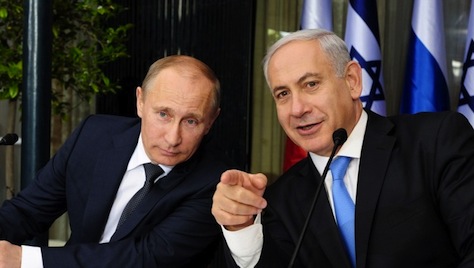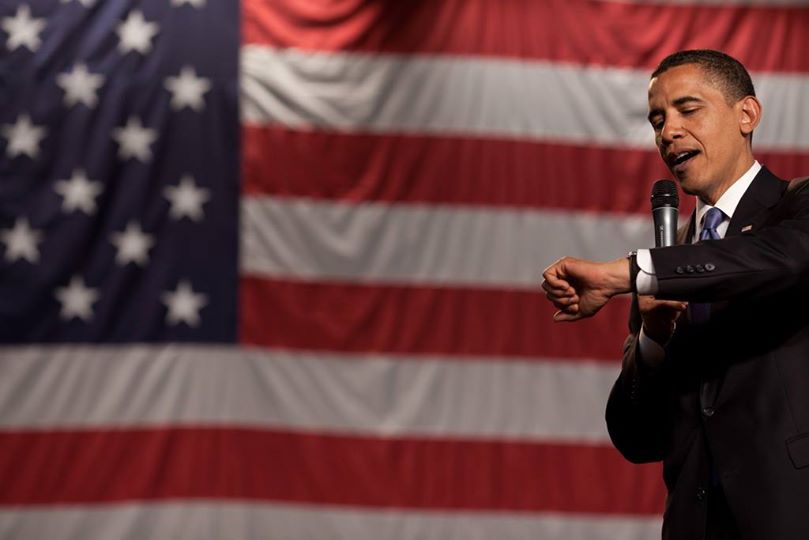 Photo credit to Kobi Gideon / GPO / Flash90.
Photo credit to Kobi Gideon / GPO / Flash90.
It’s still irresponsible chatter to suggest that Russian president Vladimir Putin’s nine-day absence from public view is anything more serious than the flu.![]()
![]()
![]()
But as Julia Ioffe wrote Saturday in The Washington Post, even if Putin’s absence is, as very likely, caused by something as mundane as the influenza epidemic currently sweeping through Moscow, it is becoming a more serious event because of the highly personalized system of Russian government where everything has become so micromanaged by Putin and his close allies. The longer Putin’s absence, the greater the chances of an internal coup or putsch, perhaps by the internal security forces, the siloviki, upon whose support Putin rose to power in the 2000s:
You can see why some in Russia are panicking right now—or veiling their discomfort in humor. It certainly doesn’t help that Putin’s disappearance comes at a particularly nervous time for the country. It is at war in Ukraine, its economy is shuddering under sanctions and historically low oil prices, and the opposition leader, Boris Nemtsov, was recently gunned down steps from the Kremlin. There is a sense in Moscow that the wheels are coming off. To Moscow’s chattering class, Putin’s disappearance confirms that impression.
Meanwhile, on Tuesday, in national elections, Israeli prime minister Benjamin Netanyahu’s center-right Likud (הַלִּכּוּד) is set to win fewer seats in Israel’s parliament, the Knesset (הכנסת) than the center-left Zionist Union (המחנה הציוני) of Labor Party leader Isaac Herzog and former justice minister Tzipi Livni. Though it’s too soon to write off a third consecutive mandate for Netanyahu, the March 17 vote is the toughest electoral fight for Netanyahu since he lost his first bid for reelection in 2001.
Even if Israeli president Reuven Rivlin, a former Likud speaker in the Knesset, convinces Likud and the Zionist Union to form a national unity coalition, polls show that Herzog, and not Netanyahu, would become prime minister. That would place deadening pressure on Netanyahu’s leadership of Likud, where capable replacements, such as former interior minister Gideon Sa’ar, are waiting in the wings.
Remarkably, that means that US president Barack Obama’s two most nettlesome rivals in international affairs could be sidelined in the course of the same week — or even the same day.
No matter what happens, Israel will certainly remain one of the chief US allies in the Middle East (and the world). It’s also likely that Russia’s posture toward the United States will, for the foreseeable future, lie in the wary space between hesitant ally and hostile enemy.
That’s not to say that either Putin or Netanyahu are more dangerous than brutal jihadist leaders or repressive dictators throughout the world. That’s not to say that even the Obama administration can’t have good relationships with Russian officials (such as the rapport that Obama developed with Putin’s prime minister and former president Dmitry Medvedev) or with Israeli officials (such as the close ties between Livni and US secretary of state John Kerry).
In strategic terms, however, Putin and Netanyahu have been the two world leaders that have given the White House the most trouble, especially in Obama’s second term. Not only has Netanyahu opposed the Obama administration’s efforts to reach a deal on Iran’s nuclear energy program, Netanyahu has been hostile to Kerry’s aborted attempts at reviving the Israeli-Palestinian peace process. His government’s decision to launch a military offensive in Gaza last summer in response to Hamas provocations met with an uproar of global criticism of Israeli callousness to civilian casualties, with plenty of blowback for the United States, which provides Israel with much of its military and political support.
Six years after former US secretary of state Hillary Rodham Clinton tried to hit the ‘reset’ button with Russia, the Obama administration has been drawn into a new Cold War dynamic with Putin. The annexation of Ukraine’s Crimean peninsula and Russian involvement in the separatist movements in eastern Ukraine have heightened tensions between Russia and the United States (and Europe) to levels not seen since before the fall of the Soviet Union. Though the Putin-brokered deal for international experts to remove Syria’s chemical weapons has generally been a success, Putin is widely seen as having outmaneuvered the Obama administration over its Syria policy.
If Putin’s absence does augur something more serious than a fleeting illness, his successor might be even worse for Russia and bilateral relations — a more aggressive, more nationalist 21st century czar. Netanyahu’s fall could trigger the rise of a more hardline leader on the Israeli right, such as Naftali Bennett, who makes Netanyahu look like a dove on Iran, Gaza, the peace process and Israeli settlements.
Though it’s still very much unlikely that both Putin and Netanyahu will fall from power this week, there’s a lot of nervous tension this weekend in Jerusalem, Moscow and Washington, and the uncertainty is a reminder that ‘black swan’ events can often rupture longstanding assumptions about foreign policy.
